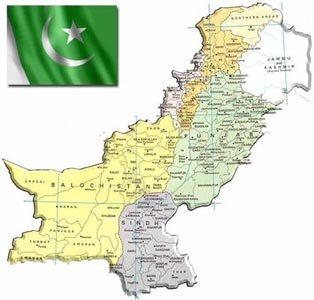
Here we go again with Pakistan. This isn't deja vu. No, it's now a routine pattern in modern life: An Islamic fundamentalist trains in Pakistan and then flies to America or another Western state to wreak havoc.Look back decades. Ramzi Yousef, the 1993 World Trade Center bomber, was born of Pakistan parents in Kuwait and trained for the attack in Pakistan.Ramzi Bin al-Shibh, the Yemeni suspected of coordinating the Sept. 11 attack, was arrested the next year in Pakistan. Several men involved in the London train bombings five years ago trained in Pakistan. So did Richard Reed, the shoe bomber.Last year, FBI agents in New York charged Najibullah Zazi and his father with planning a terror attack in the United States after receiving extensive training in bomb making and terrorist strategies in a Pakistani camp.The litany of attempted and actual terror attacks offers at least half-a-dozen similar examples from Pakistan in recent years, and now comes the latest: Faisal Shahzad, the failed Times Square bomber, who trained in terror in his native country - Pakistan.How did this come to be? Syria, Libya, Algeria, Egypt ... many similar states are home to millions of people who hate the United States. None of them - in fact no other country, anywhere - so regularly sends miscreants to America. What makes Pakistan "special"?The common historical explanation lays blame in part on the United States for encouraging Pakistanis to fight the Soviet troops in Afghanistan during the 1980s. That probably played a role; it gave Pakistanis a taste of jihad. But I believe the Pakistani government holds the most responsibility.Why? Pakistan is one of those countries - and there are more of them than you might think - whose government does absolutely nothing for its people, except require the payment of taxes and bribes. It offers virtually no social services, and the society is so stratified that it falls into a de facto class structure, much like neighboring India, from which Pakistan was born more 60 years ago. Two-thirds of the nation's people live in the provinces, and they are the "underclass" - ignored by Islamabad, except when they are abused. Medical care is virtually non-existent. And schools, a Pakistani children's advocacy society declared last month, "suffer from the worst forms of negligence, indifference and apathy." The government spends 1 percent of its budget on health-care services, 2 percent on education.Much of the world is governed by leaders who do not see offering public works as part of their responsibility. The expectation that government will offer social services is a relatively recent phenomenon, and then only in developed countries. How much did the federal government do for Americans 100 years ago?The result in Pakistan is that the vast majority of people are poor and uneducated. Only about one-third of boys make it past elementary school and just over one-quarter of the girls. The average per-capita income is just over $900 a year, a figure that would be far lower if the state's multi-millionaire oligarches did not inflate the average.UNICEF says 42 percent of the state's children are so malnourished that they suffer from stunting, meaning they are not growing, physically or mentally. Forty-two percent! The damage is permanent. So when children grow up, generally they are poorly educated, and almost half of them have "stunted" intellects. All of them are still aware enough to breath in the anti-American ethos that animates Pakistani society. And right now, 44 percent of Pakistan's population is under 18. In this group is the next generation of angry, violent extremists.We've all seen movies or read books depicting smooth-talking mullahs in Islamic countries recruiting young men for terror groups. Pakistan is the model for this. There, children who agree to be recruited win new respect from their friends. In many cases what choice do they have? Job prospects range from weak to non-existent."If you have lost faith in the state," said Adil Najam of Boston University, who writes the blog All Things Pakistan, "anyone who comes along and offers you a glorious future, that is very attractive."I've said it before, and I'll say it again. America's problem is not Afghanistan. The problem is Pakistan. As Daniel Markey, a former senior State Department official, told Congress: "The United States should shift its strategic focus not just from Iraq to Afghanistan, not just to link Afghanistan and Pakistan, but to go one step further and place Pakistan at the center of our strategic concerns."
ABOUT THE WRITER
Joel Brinkley is a former Pulitzer Prize-winning foreign correspondent for The New York Times and now a professor of journalism at Stanford University. Readers may send him e-mail at: brinkley@foreign-matters.com
No comments:
Post a Comment